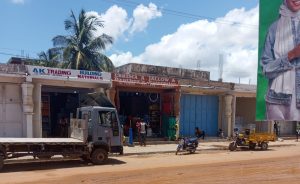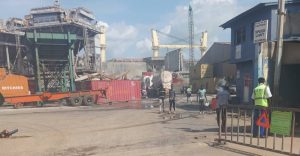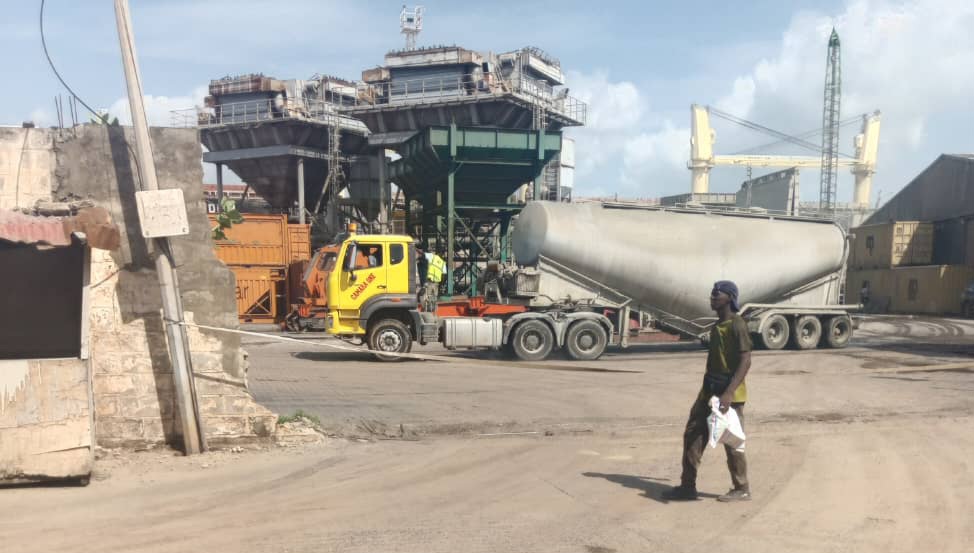Jimpex, a once vibrant cement trading centre, is now a shell of its former self as some cement stores in the area have been shuttered while scores of people spend most of the day, sitting idle for more than one year now thanks to the Gambia government’s cement tariffs policy.
Once a vibrant cement trading centre, the Jimpex area is an indication of the huge livelihood and revenue loss that the Gambia government continues to cause citizens and non-citizens as a result of the exclusive right that it extended to Salam, Jah Multi-factory and Gacem cement factories in February of last year.
The government insists that it’s protecting these factories against imported cement to soar local production.
But as recently as on Tuesday, Jah Oil cement tankers were seen carrying imported powder cement from a vessel docked at the Banjul Port.
Cement stores in the once bustling cement trading centres were virtually empty while traders and labourers sat at store fronts and at counters, thoughtful and sad in a way.
The hardship that these people have been encountering since the introduction of the government’s D180 cement duty was palpable.
“Jah Oil promised that it can satisfy the country’s cement demand, but look at my store. It’s almost empty,” cement dealer Abdou Rahman Jallow told JollofNews.
“We have been financially ruined by the non-arrival of bagged cement from Senegal. When cement was coming from Senegal, prices were kept at affordable levels and there was consistency of supply and accessibility,” another cement dealer, who spoke on condition of anonymity, said.
When JollofNews met Abdou Khan at his store at Jimpex, he was at first reluctant to talk but he eventually opened up.
“My store used to be filled to capacity but as you can see, it’s almost empty now. I only have Salam cement in stock but people are not buying it like other brands,” he lamented.
Khan, a native of Banjul, called for the liberalisation of the cement trade to avoid the ongoing destruction that the cement levy has been causing to livelihoods across the country.
“The government can encourage competition by creating a level-playing field for all players. This will anchor the cement prices down and guarantee availability and accessibility,” he opined.
He, however, pointed out that in the event the government removed the cement levy and allowed cement into the country from Senegal, the sector must be regulated.
“The right tax should be paid to the government and no supplier should be allowed to sell on the road to stifle retailers,” he advised.
At the corner of the street to Abou Khan’s shop is located a store run by Saffiyatou. Though media shy, Saffiyatou could not hide her frustration over the persistent cement shortages that have now threatened her livelihood.

“I have no cement now. These bags of cement you are now seeing have already been bought. This is a tough situation and it’s destroying our businesses gradually,” she reluctantly said when asked about how she had been living it.

JollofNews found at Abou Khan’s shop two labourers, whose unfriendliness and withdrawn state, was later found to be related to the hardship that they have been enduring as a result of the impact of the government’s trade tariff.

Many people, who spoke to this medium, appealed to the Gambia government to reconsider the cement tariff, which saw the levy on a bag of cement jump from D30 to D180.

Idleness, despondence, frustration, and uncertain economic futures have now replaced activity, hope, enthusiasm and secure livelihood prospects at the once bustling Jimpex cement trading hub.





